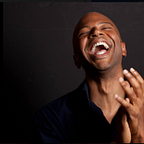Column: Stereotypes and labels are lazy, wrong
In response to Karen Kirk’s Aug. 5, 2020 identically titled op-ed.
At first we thought we were free, sort of. Then we quickly learned we weren’t. Now, after centuries of being treated less than human, not counted, having our votes suppressed and lives snatched for the cause of equality, we find ourselves being called the same names we’ve always been called: Monkeys. Niggers. Animals. Thugs.
“[Pick any from above]” has long been a label for any Black or Brown human of any ilk or background: a veteran, a doctor, a protestor, anyone fighting for their right to be free and equal. It has become the default vernacular for groups of people who think rights belong only to White, cisgender folks and who are afraid that other people living freely means they have to give something up (except they don’t).
I really thought that this behavior would have stopped happening by now — it’s been 400 years — but instead, it has become more brazen. Police officers calling for the assassination of a Black journalist, nooses hanging in NASCAR hangars, a president who calls brown countries “shitholes,” Black face Halloween costumes, and white people calling the police on children. I realize this isn’t the full list, but still.
“Nigger” is even defined in dictionary.com as “a contemptuous term for a Black or dark-skinned person.”
There’s a gut-punch daily since 1619 when Black people were stolen from their own homes to forge a country that would never be ours.
Or,
There’s a gut-punch daily since violent lynching was deployed against Blacks for anything a White person deemed unacceptable.
Or,
There’s a gut-punch daily since the passage of the 13th Amendment criminalized melanin and allowed slavery to continue just under a different brand. Now, Black and Brown people are told to “shut up and dribble” or are dangerously mischaracterized by Donald Trump (most offensive), Tucker Carlson, Jeanine Pirro, Sean Hannity, and even Ann Coulter, as well as proliferating over social media.
As one of 47.8 million Black people in the United States, seeing people who look like me be randomly victimized, arrested, jailed and killed (arrest the officers who killed Breonna Taylor) is soul-crushing.
I am a Black man who fears for his life when he passes a hidden police car, who has been taught by his parents how to speak to police officers, has been followed in a store by employees assuming I would steal something, and has had the word “nigger” hurled into my face as early as middle school. And I am sure there are many other like-minded Black people who have had the same experiences out there.
One reason Black people are called these names is to dehumanize us. It makes it easier to inflict pain and harm when you don’t see a person as a person. So, I guess that’s what its supposed to do. Ironically, Black culture is one of the top 10 things taken from us, but also our dignity and our lives have so often been.
I can’t remember how many other Black people I went to school with in Columbus, Ohio, but I’m fairly sure that being Black has never been popular, as evidenced by Jane Elliott’s “Being Black” presentation, in which zero people respond when asked who among them would willingly accept the treatment Blacks receive so regularly. Also, Rosa Parks decided she was worth more than a seat in the back of a bus 23 years (to the day) before I was born.
We Black people moved through several grades. We were well-behaved, sometimes intimidated (it’s America, after all) — mostly quiet, friendly and cheerful. Privilege or not, Black skin is sometimes the only thing White people see.
I think that it’s long past time racism to be expelled from this country once and for all. When people see my skin color, I don’t want them to have a preconceived, negative impression of me that will definitely put me in harm’s way. As easy as it would be to wish I was White, that’s not about to happen.
Karen Kirk, I can think of better things to do with my time than write this article, but I just wanted you to know how ridiculous you sound. By the way, my name is Kevin (which is often used as the male version of “Karen.”)
